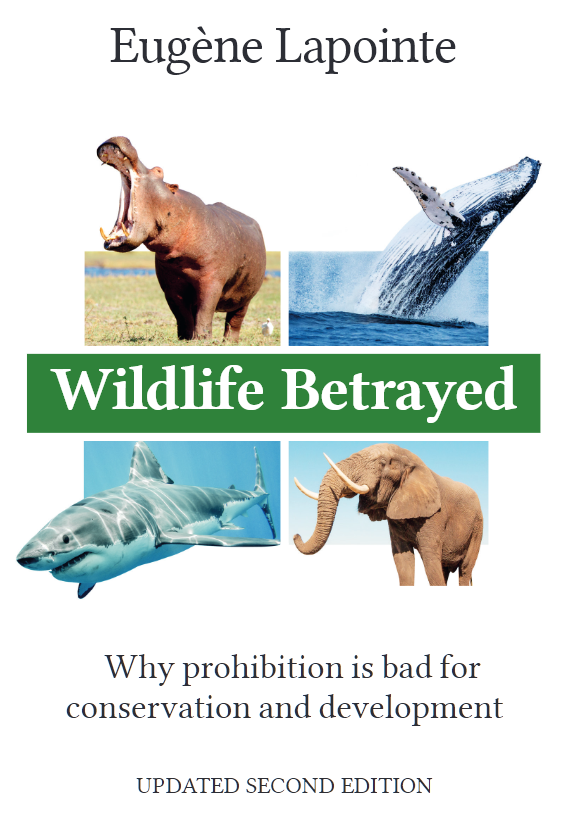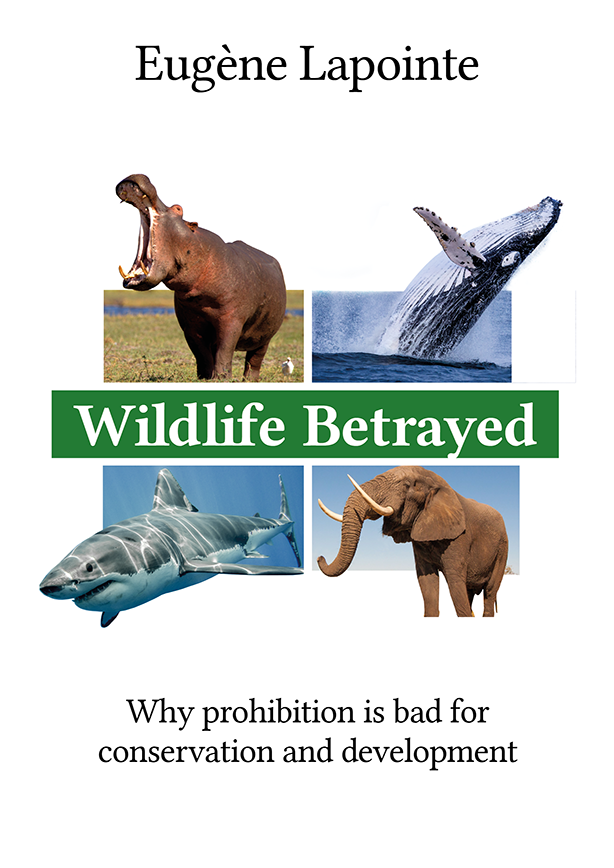Eugène Lapointe, outspoken former Secretary-General of CITES, has just released Wildlife Betrayed: Why prohibition is bad for conservation and development, a broadside assault on prohibitionist non-governmental organizations that campaign tirelessly – and with bags of money that rival American election campaigns – to prevent the sustainable use of wild animals in rural community development and wildlife conservation actions, particularly targeting international trade.
Lapointe’s viewpoint was shaped at an early age growing up in a Canadian forest hunting and trapping to supplement the family’s meal table. His outlook is pragmatic, based on “the laws of nature which govern the Wise Use of wildlife” with the guiding principle “Make the species of value, and people will make an effort to keep it.” No one is worried about cattle going extinct, but they are traded and eaten in great quantities. The same principle works with wildlife, if given the chance.
The book examines the Multilateral Game and where and how NGOs and CITES fit in, presents six in-depth case studies, and issues a call for the reform of CITES, which has been steered away from its core principles. Rather than adopting regulations that enable sustainable trade, CITES increasingly has been banning all trade, betraying wildlife by robbing it of value.
I would highly recommend that anyone wishing to understand CITES, the complex politics behind its operations and one informed view of what needs to be done to save it from irrelevance to read this book.
Daniel Stiles
Illegal Wildlife Trade Expert, Based in Nairobi, Kenya


